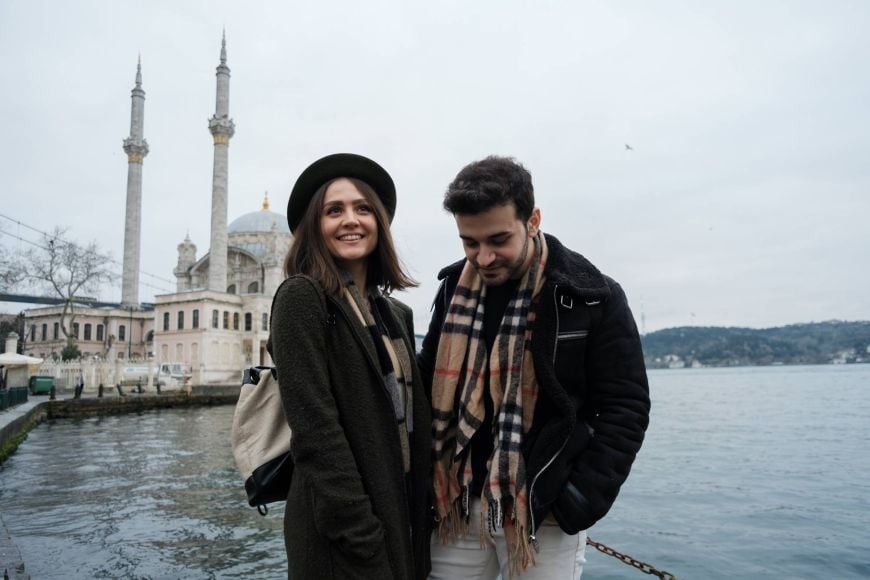When planning a trip to Turkey, one of the most common questions travelers have is, "what to wear in Turkey?" With its rich history, diverse culture, and varying climates, Turkey offers a unique blend of modernity and tradition, influencing its dress codes. This guide will help you understand the appropriate attire for different regions and occasions, ensuring you feel comfortable and respectful throughout your visit.

Understanding Turkey's Cultural and Climatic Diversity
Turkey spans two continents, Europe and Asia, and its geographical diversity is mirrored in its cultural and climatic variations. From the bustling, cosmopolitan streets of Istanbul to the serene beaches of the Mediterranean coast and the conservative heartland, each area may have different expectations regarding dress.
What to Wear in Istanbul
Istanbul, Turkey's largest city, is a melting pot of East and West. It's modern and cosmopolitan, but also deeply rooted in tradition. When considering what to wear in Istanbul, think of it as any major European city with a touch of conservatism.
City Outfits: For daily wear, casual yet stylish clothing is appropriate. Think comfortable jeans or trousers, skirts, dresses, and tops. While the city is quite liberal, it's a good idea to avoid overly revealing outfits.
Mosque Visits: When visiting mosques, both men and women should dress modestly. Women should cover their heads, shoulders, and knees. Carry a scarf or shawl for this purpose. Men should avoid shorts and sleeveless shirts.
Evening Wear: Istanbul has a vibrant nightlife with numerous upscale restaurants and bars. A smart-casual outfit works well here. For women, a chic dress or elegant blouse with trousers is suitable. Men can opt for a collared shirt with slacks.
Turkey Outfit Tips for Coastal Regions
Turkey's coastal regions, like Antalya and Bodrum, are popular tourist destinations known for their beautiful beaches and relaxed atmosphere. The dress code here is more relaxed compared to urban and rural areas, making it easier to choose comfortable and casual outfits.
Beach Wear
Standard beachwear such as swimsuits, bikinis, and shorts are perfectly acceptable on the beaches and at resorts. Feel free to wear your favorite swimwear while sunbathing or swimming. However, when leaving the beach area, it is courteous to cover up. A lightweight beach cover-up, sarong, or a casual sundress works well for this purpose. This not only shows respect for local customs but also protects you from the sun.
Day Outfits
For daytime activities, light, breathable fabrics are ideal for the warm weather. Casual dresses, shorts, tank tops, and sandals are perfect choices. Opt for materials like cotton, linen, and rayon, which help keep you cool and comfortable. Loose-fitting clothing allows for better air circulation, making it easier to cope with the heat.
Don’t forget to wear a hat and sunglasses to protect yourself from the strong sun, and apply sunscreen regularly.
Evening Attire
Evenings in coastal regions might be slightly cooler, especially with the sea breeze. A light jacket, cardigan, or shawl can provide the necessary warmth without being too heavy. For dining out or enjoying the nightlife, smart casual wear is recommended. Women can opt for a stylish dress or a blouse paired with a skirt or trousers. Men can choose a collared shirt with chinos or dress shorts. Comfortable yet stylish footwear, like sandals or loafers, will complete your evening look.
What to Wear in Turkey as a Woman Tourist
Women traveling in Turkey can generally wear what they would back home, with a few considerations for modesty and respect, especially in rural or conservative areas.
Urban Areas: In cities like Istanbul, Izmir, and Ankara, women can wear modern Western clothes. Dresses, skirts, trousers, and tops are all fine, but avoid overly short skirts and low-cut tops.
Rural Areas: In more conservative regions, opt for clothing that covers your shoulders and knees. Long skirts, loose trousers, and tops with sleeves are advisable.
Religious Sites: Always carry a scarf for covering your head in mosques. Modest clothing that covers your shoulders and knees is a must.
Istanbul Dress Code for Tourists
The dress code in Istanbul is quite flexible compared to other parts of Turkey. However, tourists should always aim to dress respectfully, especially in religious and historical sites.
Respecting Traditions: While you don't need to cover your head unless entering a mosque, dressing modestly is a sign of respect. Avoid overly tight or revealing clothing.
Weather Considerations: Istanbul experiences hot summers and cold winters. In summer, light, breathable fabrics are ideal, while in winter, layered clothing, coats, and boots are necessary.

Turkey Dress Code for Men
Men's dress code in Turkey is generally straightforward, but here are some guidelines to follow:
Casual Wear: T-shirts, polo shirts, jeans, and shorts are acceptable in most casual settings.
Formal Occasions: For dining in upscale restaurants or attending formal events, collared shirts, trousers, and sometimes jackets are appropriate.
Religious Sites: Men should wear long trousers and avoid sleeveless tops when visiting mosques.
Turkey Clothes for Ladies
When packing for Turkey, ladies should consider versatile clothing that suits various settings and weather conditions.
Layering: Due to the varying climates, layering is a practical approach. Pack a mix of lightweight tops, cardigans, and scarves.
Footwear: Comfortable walking shoes are a must for exploring cities and historical sites. Sandals are perfect for the beach, while a pair of smarter shoes will come in handy for dining out.
Accessories: Scarves are versatile accessories that can be used for modesty in mosques or as a fashion statement.
Clothes in Turkey by Season
Turkey's diverse climate means you need to pack according to the season and region you plan to visit. Each season brings its own unique weather patterns, making it essential to pack appropriately to ensure comfort and enjoyment during your travels.
Spring (March to May)
Spring in Turkey is a delightful season with mild temperatures and blossoming landscapes. However, the weather can be unpredictable, with sudden showers and temperature fluctuations. Light jackets or trench coats are perfect for the cool mornings and evenings. Long-sleeved shirts and blouses are ideal for layering, providing warmth without being too heavy. Comfortable trousers and jeans are versatile options for sightseeing and casual outings. Layering is key during spring, so pack cardigans, light sweaters, and scarves.
Comfortable walking shoes are essential; opt for closed-toe shoes that can handle both dry and wet conditions.
Summer (June to August)
Summer in Turkey, especially in the coastal regions, can be quite hot with temperatures often soaring above 30°C (86°F). Light, breathable clothing is essential to stay cool and comfortable. Opt for fabrics such as cotton, linen, and rayon. Shorts, skirts, and dresses are perfect for the hot weather. If you plan to visit the coastal areas, pack your swimwear for the beach. Sun protection is crucial, so bring a wide-brimmed hat, sunglasses, and sunscreen. Evenings can be cooler, especially in coastal areas, so a light cardigan or shawl can provide just the right amount of warmth.
Autumn (September to November)
Autumn in Turkey brings cooler temperatures and beautiful fall colors. Light sweaters and cardigans become essential for added warmth. Trousers and jeans are versatile, and you might consider warmer options like corduroy or heavier cotton. Layering is important in autumn, so pack a mix of short-sleeved and long-sleeved tops, along with light to medium-weight jackets and scarves. Closed-toe shoes or ankle boots are suitable for the cooler weather.
Winter in Turkey can vary significantly depending on the region. Coastal areas remain relatively mild, while the interior and eastern regions can experience harsh, cold winters with snow and freezing temperatures. Pack warm clothing, including heavy coats, sweaters, and thermal layers. Accessories like scarves, hats, and gloves are necessary to keep you warm. Insulated boots or sturdy winter shoes are crucial, especially in areas where snow and ice are common. Layering with thermal underwear, long-sleeved tops, and sweaters can provide additional warmth.
Regional Considerations
When planning what to wear in Turkey, it's also important to consider the specific regions you will be visiting, as the climate can vary greatly:
Istanbul and Northern Turkey: These areas have a more European climate with distinct seasons. Prepare for cold winters and hot, humid summers.
Central Turkey (Ankara, Cappadocia): Central regions experience hot summers and cold winters with potential snow. Spring and autumn can be mild but variable.
Eastern Turkey: This region can have harsh winters with heavy snowfall and cold temperatures. Summers can be hot but generally less humid than coastal areas.
Western and Southern Coastal Regions (Antalya, Bodrum, Izmir): These areas have a Mediterranean climate with mild, rainy winters and hot, dry summers. Lightweight clothing is suitable for most of the year, but bring warmer layers for winter evenings.
By understanding Turkey's seasonal and regional climate variations, you can pack appropriately and enjoy a comfortable and memorable trip.
Understanding what to wear in Turkey can help you feel comfortable and respectful as you explore this beautiful and diverse country.
From the cosmopolitan streets of Istanbul to the relaxed coastal towns and the conservative heartland, each area offers a unique experience that is mirrored in its dress code. Whether you're a woman wondering about the turkey clothes for ladies or a man looking to dress appropriately, following these guidelines will ensure you enjoy your trip while respecting the local culture.
When planning your Turkey outfit, consider the season, the region, and the activities you plan to engage in. Pack versatile and comfortable clothing, and always keep a scarf handy for impromptu mosque visits. With this guide, you'll be well-prepared to dress appropriately and enjoy all that Turkey has to offer.
We are always ready to answer all your questions, please reach out via Whatsapp +90 (532) 158 42 44
If you want to emigrate or buy an apartment in Turkey or own a property in turkey and enjoy life by the sea, message our specialists who will find the best options for your budget.
Also, subscribe to our YouTube channel and Instagram page to receive information from the professionals!
An additional channel to connect with us: Telegram
